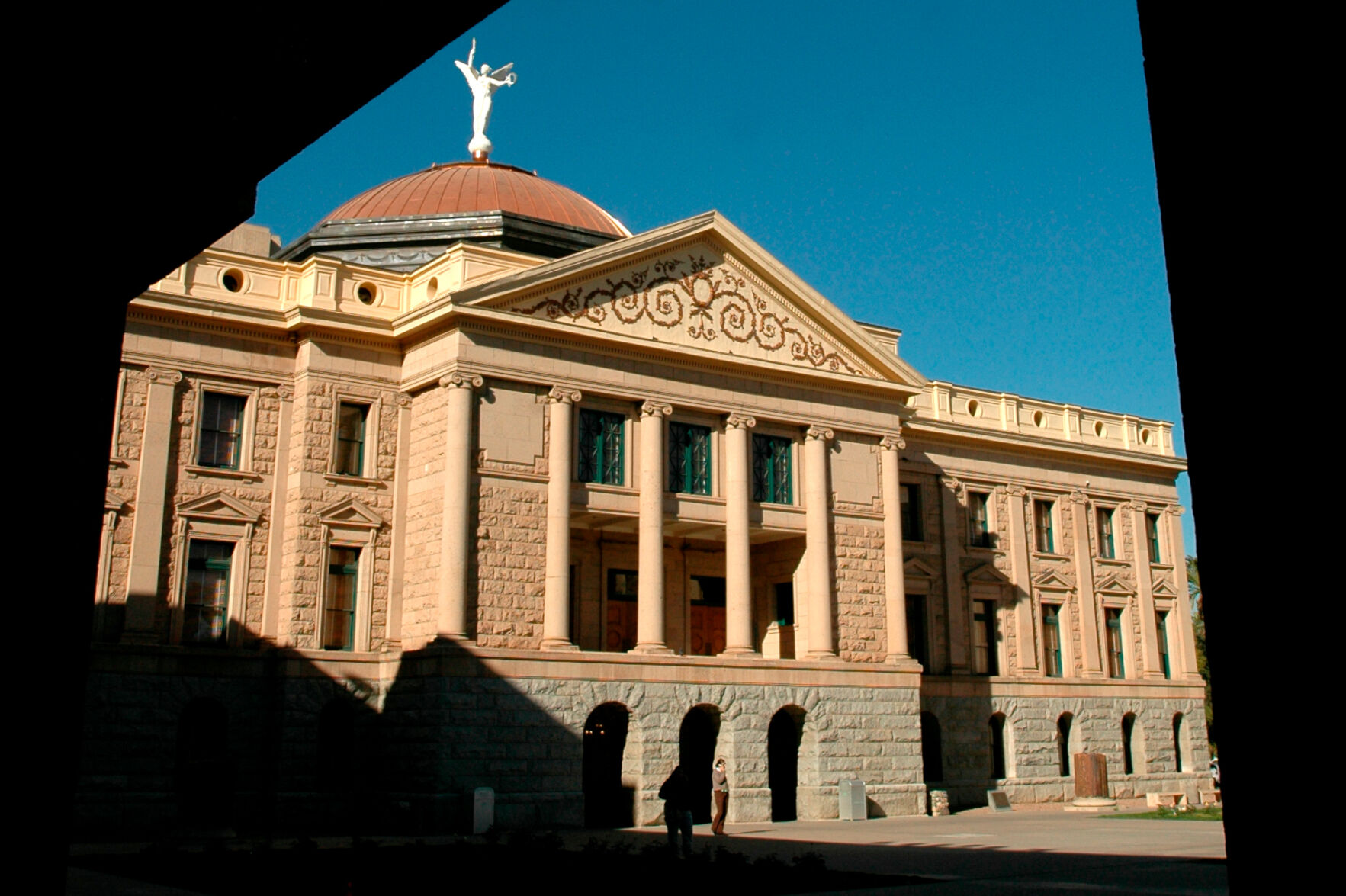PHOENIX — With efforts by one set of foes already rebuffed, the state’s top Republican lawmakers are making their own bid to quash a new state law designed to shine a light on “dark money.”
In a new court filing, Senate President Warren Petersen and House Speaker Ben Toma contend that Proposition 211 infringes on the constitutional right of the Legislature to make laws. Now they want Maricopa County Superior Court Judge Frank Moskowitz to override what voters approved just last year.
The new litigation comes less than two months after a different Maricopa judge tossed out a challenge filed by the Arizona Free Enterprise Club and the Center for Arizona Policy. Scott McCoy rejected their claims that the requirements of the law to disclose the true identity of those who spend money to affect candidate races and ballot measures violates the rights of donors.
A separate challenge is pending in federal court where Americans for Prosperity, a conservative advocacy group founded by the Koch brothers, contends Proposition 211 results in “government doxxing” of those who contribute to political groups. No ruling has been made in that case.
This new effort advances a different legal argument: whether voters, in approving the measure, gave too much power to Secretary of State Adrian Fontes who is charged with gathering information on donors and the Citizens Clean Elections Commission which enforces the law.
“Without court intervention, the defendants stand to violate under color of state law the rights and plenary lawmaking power of the Arizona Legislature under the Arizona Constitution,” wrote attorney Brett Johnson for Petersen and Toma. “And the Arizona Legislature will suffer ongoing, irreparable injury and loss of its constitutional rights.”
Arizona law has long required public disclosure of those who give directly to candidates. In fact, the state constitution mandates such laws.
But the statutes were crafted in a way to allow donors to hide their identities by giving their fund to other groups.
That’s what happened in 2014 when several groups, including the Free Enterprise Club, put $10.7 million into successful efforts to elect Republicans Tom Forese and Doug Little to the Arizona Corporation Commission, the panel that regulates utility rates.
Three years later, the commission approved a 4.5% rate hike for Arizona Public Service, the state’s largest electric utility.
The company didn’t disclose it was the actual original source of the funding until 2019.
Proposition 211, approved in November by a 3-1 margin, was designed to close that loophole.
It requires public disclosure of the identity of anyone who has given at least $5,000 to any front group. Potentially more significant, it requires any group making political expenditures to trace the cash back to its original source — no matter how many hands it has passed through — and disclose it in public records.
In seeking to have the law voided, Petersen and Toma do not seek to argue that disclosure, by itself is unconstitutional.
Instead, they focus on the fact that the Citizens Clean Elections Commission, originally created in 1998 as part of a voluntary system of public financing of statewide and legislative campaigns, is empowered to make its own rules for how some of the terms of Proposition 211 will be enforced.
For example, the initiative spells out that it applies to any organization that spends at least $50,000 in “media spending” on statewide campaigns or $25,000 on other races. Then it defines what that phrase means.
That is defined to include any activity or public communication that “supports the election or defeat of candidates of an identified political party or the electoral prospects of an identified political party, including partisan voter registration, partisan get-out-the-vote activity or other partisan campaign activity.” And it further includes things like research, polling and data analytics.
Whether an activity crosses the line, Johnson said, is defined by the Citizens Clean Elections Commission. At the same time, though, the commission has broad powers like issuing and enforcing subpoenas, initiating enforcement actions, conducting hearings and investigations and “imposing steep penalties against potential violators.”
Then there’s Johnson’s complaint that the commission’s rules and enforcement actions are exempt from the state’s Administrative Procedure Act which governs and limits the activities of other state agencies. That, said Johnson, leaves the commission “with virtually unfettered ability to adopt, interpret, and enforce any adopted regulations without any meaningful form of checks and balances.”
What’s worse, he said, is that the measure is “riddled throughout with … inconsistencies and contradictions.”
But the Voter Protection Act bars lawmakers from altering anything approved at the ballot. That, said Johnson, precludes lawmakers from making necessary fixes — and pretty much leaves the commission to decide on its own how to interpret those “inconsistencies.”
The bottom line, he said, is that Proposition 211 gives the commission, whose members are appointed but not elected, executive, legislative and judicial functions “all without any form of legislative or executive oversight.” And that, said Johnson, is a violation of the separation of powers.
No date has been set for a hearing.
Get your morning recap of today's local news and read the full stories here: http://tucne.ws/morning




